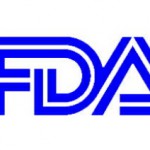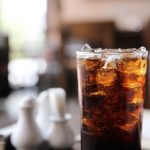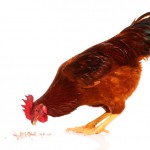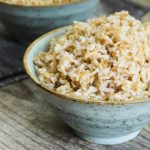When I watch television shows such as "Unwrapped", which detail how many popular foods are made, I always wonder exactly how facilities keep those huge machines clean enough to handle food. How are the machines oiled? What about the fuel used to power the machines? As it turns out, the German consumer group Stiftung Warentest analyzed the chocolates in some Advent calendars available for sale in Germany and found mineral oil residues. The oil most likely came from products used to lubricate machines or from recycled packaging. No illnesses have been reported associated with this issue, and the German Confectionary Association says there is no health concern. But aromatic mineral oil is contaminated with carcinogens. At the low level found in the candies, there would be no immediate … [Read more...]
Industry Voluntarily Withdraws C8 Greaseproofing Agents From Market
The FDA announced today that manufacturers of five greaseproofing agents known as C8 compounds have voluntarily withdrawn them from the marketplace. Those compounds are used as coatings on paper wrappers and containers which come into contact with food. They are found on fast-food wrappers, microwave popcorn bags, pizza boxes, and pet food bags and are used to prevent grease from foods from leaking through packaging. The compounds are perfluorinated grease proofing agents. Perfluorinated compounds (PFC) have had all the hydrogen molecules on a carbon chain replaced by fluorine. One common PFC is perfluorooctanoic acid, which is used to make Teflon. Scientific studies have shown that C8 compounds persist in the environment and can be toxic to humans over time. Almost every person has … [Read more...]
CSPI Finds 4-MI Levels in Coca-Cola Vary Worldwide
The Center for Science in the Public Interest (CSPI) has just released a study showing that the levels of 4 methylimidizole (4-MI) in Coca-Cola varies, depending on where it is sold. That chemical is a carcinogen, although humans would have to consume thousands of cans of the product every day to reach the level of carcinogenicity seen in lab rats. The compound 4-MI forms when ammoniated caramel coloring used to give cola drinks their color is made. When California started requiring a cancer-warning notice on some colas earlier this year, Coke switched to a less-contaminated caramel coloring. CSPI measured the 4-MI content of Colas in nine countries. These are the amounts found in 12 fluid ounces, or 355 ml, of Coca-Cola. Brazil: 267 micrograms Kenya: 177 micrograms … [Read more...]
Nature’s One Announces Goal for Zero Arsenic in Baby Formula
Nature's One, the baby food manufacturer that was at the center of the controversy over arsenic in brown rice syrup, has announced a goal for zero arsenic in baby formula. Brown rice syrup is used as a substitute for high fructose corn syrup and other sugars in many products. In February, researchers at Dartmouth College found that some baby formula brands that are sweetened with organic brown rice syrup exceeded the government standards for arsenic in bottled water. That standard is used because the government has not set a standard for arsenic in foods, but is conducting a study about the toxin in rice. Arsenic is found in rice because much of that crop is grown in former cotton fields in the South, where arsenic was used as a pesticide to kill boll weevils. The rice plant absorbs … [Read more...]
Maryland’s Governor Signs Bill Banning Arsenic in Poultry Feed
Martin O'Malley, Maryland's governor, signed a bill on May 22, 2012 banning arsenic in poultry feed. Maryland is the first state in the country to ban this practice. The law takes effect January 1, 2013. HB 167 prohibits a person from "using, selling, or distributing specified commercial feed intended for use as poultry feed that contains roxarsone or any other additive that contains arsenic." Roxarsone is also known as 3-Nitro®. It was sold by a subsidiary of Pfizer called Alpharma and was used to prevent coccidiosis, a parasite poultry disease. The drug was also used for weight gain, feed efficiency, and improved pigmentation. Roxarsone was first approved for use in 1944. At that time, scientists believed that organic arsenic would be excreted as organic arsenic. But new … [Read more...]
CSPI: Caramel Coloring is a Carcinogen
When you hear the word "caramel", you most likely think of a soft brown candy, made by slowly cooking sugar. But "caramel coloring" is not the same thing. That artificial ingredient, used in products such as Coca-Cola and Pepsi, is made by combining corn sugar with chemicals such as ammonium and sulfates under high pressure and temperatures. The Center for Science in the Public Interest (CSPI) is calling on the FDA to revoke the Generally Regarded as Safe (GRAS) status of caramel coloring, an ingredient found in many foods. Caramel coloring contains 4-methylimidazole (4-MI or 4-MEI), a known animal carcinogen. That compound forms when ammonium or ammonium and sulfites combine under certain conditions. It has no nutritional value and no flavor, despite its name, but simply colors … [Read more...]
FDA Increases Scrutiny of Arsenic in Rice
The FDA has "expanded" the surveillance of arsenic levels in organic brown rice syrup after a report last week about alarming amounts of the compound in baby formula and cereal bars. The brands were not named in the study. That report, titled Arsenic, Organic Foods, and Brown Rice Syrup, detailed high levels of inorganic arsenic in several products: Baby's Only Organic® Dairy Toddler Formula and Baby's Only Organic® Soy Toddler Formula, both produced by Nature's One®, use organic brown rice syrup. Nature's One® has released a prepared response: "An independent, third party testing laboratory completed testing on organic brown rice syrup used in formulas produced in 2011. The testing proved there are no safety concerns using the organic brown rice syrup ingredient. Nature's One® … [Read more...]
Some Baby Formula Sweetened with Brown Rice Syrup Contains Arsenic
According to a study by scientists at Dartmouth College, some baby formula and cereal bars sweetened with organic brown rice syrup exceed U.S. government standards for arsenic in bottled water. That standard is set at 10 parts per billion (ppb). There are currently no United States laws regulating arsenic content in food. The Dartmouth study, published in the journal Environmental Health Perspectives, sampled 17 baby formulas, 29 cereal bars and three energy shot drinks, all purchased in New Hampshire. The brands were not named. The researchers found that the one of the two formulas that used organic brown rice syrup as a sweetener had arsenic levels at six times the federal limit for bottled water. Brown rice syrup is used in some products instead of other sweeteners such as high … [Read more...]
Study Finds PFCs in Food Products Compromise Immune Systems
A study published in the Journal of the American Medical Association has found that exposure to PFCs (perfluorinated compounds) may reduce the effectiveness of childhood vaccines. The study was co-sponsored by the U.S. National Institutes of Health, the Environmental Protection Agency and the Danish government. PFCs are found in food packaging such as fast-food containers and microwave popcorn bags, paper plates, and non-stick cookware. The chemical is used to repel water, stains, and grease. In fact, the Washington Toxics Coalition states that many food packaging products contain PFCs, including pizza boxes. These chemicals don't break down, are a likely human carcinogen, and are pervasive in the environment and in our bodies. Children with high levels of PFCs in their bodies had … [Read more...]











